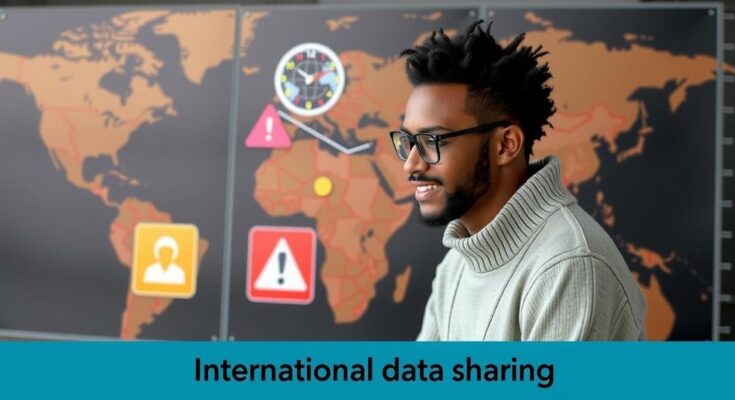Chad has published its inaugural CAP warning and begun international data sharing, marking a substantial advancement in its climate resilience. Collaborating with the WMO, Chad has modernized its meteorological services, transforming its data transmission capabilities. This success sets a benchmark for other African nations to enhance their own climate service delivery and improve global weather data integration.
Chad has made significant strides in enhancing its climate resilience by publishing its first Common Alerting Protocol (CAP) warning, alongside launching international data sharing initiatives. This development marks a pivotal moment for Chad’s meteorological agency, Agence Nationale de la Météorologie – Météo Tchad (ANAM), as it adopts modern digital tools to address historical challenges faced by National Meteorological and Hydrological Services (NMHSs) across Africa.
Since January 2024, up to 60% of NMHSs in Africa have been without a functional website, while 30% entirely lack a website. Alarmingly, 37% had not issued any weather warnings in the prior six months, and many Automatic Weather Stations (AWS) were unable to transmit data due to technical incompatibilities. These shortcomings hindered the dissemination of crucial weather and climate information necessary for safeguarding vulnerable communities.
In response to these limitations, the World Meteorological Organization (WMO) has been collaborating with ANAM to enhance the country’s climate services. This collaboration involved upgrading ANAM’s website, improving communication channels, and bolstering data visualization for effective forecasting. The culmination of these efforts took place during a mission from October 14 to 18, 2024, partially funded by the Climate Risk and Early Warning Systems (CREWS) Initiative, which also included extensive training for staff in the climate information value chain.
The mission achieved success with the publication of Chad’s initial CAP warnings and the commencement of international data exchange, significantly improving the nation’s early warning capabilities and integration into global weather data systems. By facilitating real-time data transmission from 19 AWS through the WMO Information System (WIS2.0), Chad has effectively enhanced global weather forecasts, a remarkable pivot since its 59 AWS previously did not contribute to global data sharing.
Chad’s transformation is greatly influenced by innovative open-source tools developed by WMO, including ClimWeb for better climate services management, CAP Composer for simplified alert dissemination, and WIS2Box for automated data integration. These advancements are not only pivotal for Chad but also set a benchmark for other African nations to emulate, as they confront similar challenges in AWS interoperability to improve climate data delivery, fostering resilience against climate threats.
The article discusses Chad’s recent achievements in bolstering its meteorological capabilities by adopting the Common Alerting Protocol (CAP) warning system and initiating international data sharing. This shift is part of a larger effort to modernize National Meteorological and Hydrological Services (NMHSs) in Africa, many of which face significant limitations due to outdated technology and lack of connectivity. The challenges faced by NMHSs include low website functionality, absence of weather warnings, and disjointed data sharing systems. By collaborating with the WMO and utilizing innovative tools, Chad is paving the way for improved climate service delivery on the continent.
In conclusion, Chad’s publication of its first CAP warning and commencement of international data sharing signifies a pivotal advancement in its climate resilience and meteorological capabilities. The collaborative efforts with the WMO to modernize technology and improve communication systems have significantly enhanced Chad’s ability to disseminate critical weather information. This success serves as a model for other African nations to address similar technological challenges, ultimately contributing to a more resilient and prepared continent against climate-related adversities.
Original Source: www.preventionweb.net




